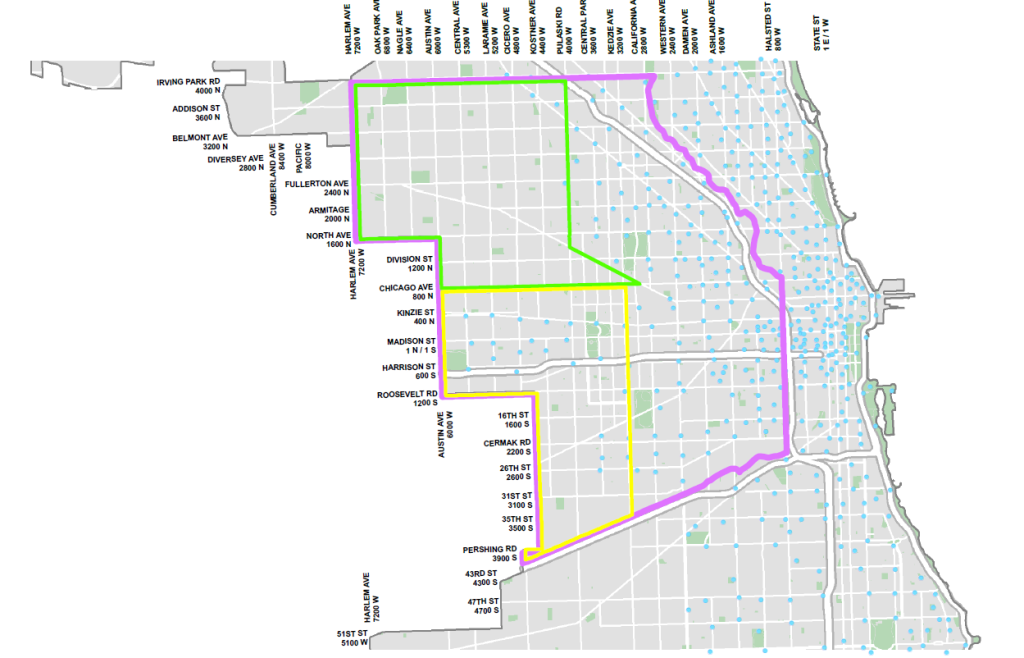Update [6/11/19]: Chicago selected 10 vendors to participate in the four-month pilot program launching Saturday June 15 on the West Side.
——–
Chicago needs better alternatives to driving and more of them. Thanks to a new pilot program, electric scooters may become part of a growing list of more efficient transportation options.
Chicago launched an e-scooter sharing pilot program that will begin on June 15 in much of the western side of the city (see graphic, courtesy of CDOT). The program is designed around recommendations from former Mayor Emanuel’s New transportation and Mobility Task Force.
The four-month pilot with 2,500 scooters provides an opportunity to address legitimate questions about how scooters will fit in Chicago’s transportation network before committing to a permanent program. The permit includes several requirements designed to address safety concerns, such as requiring users to submit photos of their parked scooter at the end of the trip.
Throughout the pilot, it will be important to prevent people from riding or parking scooters inappropriately on the sidewalk or filling up the city’s already limited network of comfortable bike lanes. In addition, the safety and mobility needs of people with disabilities must also be closely watched and evaluated.
Active Trans encourages the city to work with companies and businesses to create designated parking corrals and provide incentives for proper parking, especially in congested areas like Randolph Street in the West Loop and Milwaukee Avenue through Wicker Park. In addition, we urge the city to repurpose parking and travel lanes to bike/scooter lanes in the pilot area’s busiest corridors to help limit sidewalk riding and encourage efficient travel.
We are pleased with the pilot area because it includes many diverse communities with a range of development patterns and mobility needs. Companies need to work with residents, businesses and community-based organizations to promote safe riding and parking. Outreach must be aggressive and consistent in low-income areas where transportation options are limited and traffic crashes are more frequent.
For decades cities have designed streets around cars while other modes of transportation have largely been ignored – resulting in more dangerous streets for everyone. More Chicagoans riding scooters can help us win street space back from cars carrying one or two people and get more people walking, biking and riding public transit.

